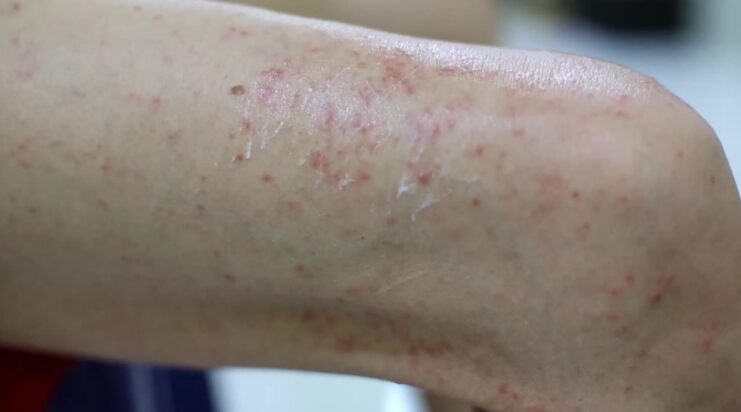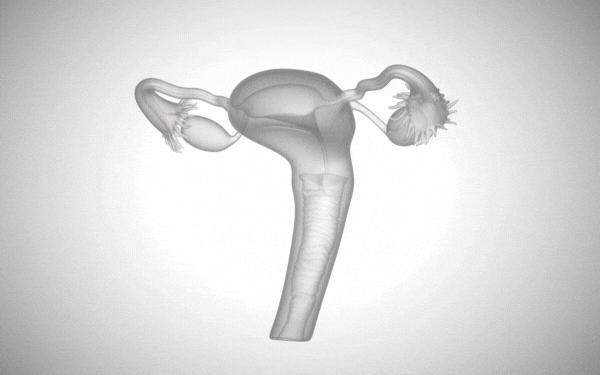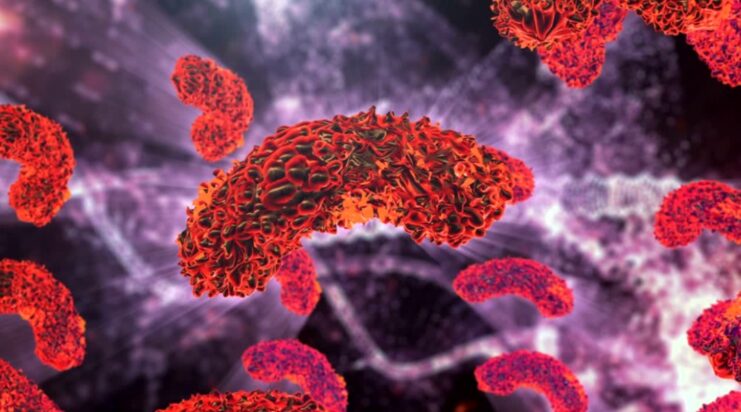Experiencing itching or irritation in the genital area is a sign that your body is attempting to communicate that something is amiss. Specifically, itching of the vulva and vagina is a relatively common issue that affects a wide demographic of women, ranging from the tender age of 5 to those well into their 60s and beyond.
Persistent itching, particularly when it extends over a period of days, can be exceptionally distressing. When severe, this itching can give way to pain, unsightly scratch marks, and hyperpigmentation of the vulval skin.
Now, let’s delve deeper into the mechanisms and potential causes of vulval itching.
Vulval Itching: Causes and Mechanisms
- Infections: The genital area, particularly the vulva, is susceptible to various infections. These can be bacterial, such as a urinary tract infection, or fungal, like candidiasis. These infections often thrive in warm, moist environments and can cause itching and discomfort.
- Allergic Reactions: Sometimes, the skin of the vulva can react to certain chemicals or materials. This could include soaps, laundry detergents, or even the fabric of underwear. These allergic reactions can cause inflammation and itching.
- Poor Personal Hygiene: Maintaining cleanliness is essential for preventing itching. In certain demographics, such as children, the elderly, or individuals with mental health challenges, personal hygiene might be inadequate. This can lead to an accumulation of bacteria and irritants that contribute to itching.
- Hormonal Changes: Particularly in older women, a decrease in the levels of female hormones like estrogen can cause thinning and dryness of the vaginal walls and vulval skin. This dryness can, in turn, lead to itching and discomfort.
- Cancer: Although less common, vulvar cancer is a serious condition that can also cause itching. This is why it is vital not to ignore persistent symptoms, as early detection is crucial in the management of any form of cancer.
- Environmental Factors: A warm and moist environment is conducive to the growth of microbes. Wearing tight or non-breathable clothing can create an environment around the genital area, leading to itching.
- Psychological Factors: Sometimes, itching can be aggravated or even caused by psychological factors such as stress or anxiety.
Experiencing itching or irritation in the genital area is a sign that your body is attempting to communicate that something is amiss. Specifically, itching of the vulva and vagina is a relatively common issue that affects a wide demographic of women, ranging from the tender age of 5 to those well into their 60s and beyond. Persistent itching, particularly when it extends over a period of days, can be exceptionally distressing. When severe, this itching can give way to pain, unsightly scratch marks, and hyperpigmentation of the vulval skin.
Now, let’s delve deeper into the mechanisms and potential causes of vulval itching.
Skin Conditions and Allergies

Skin diseases and allergies are not to be missed. Eczema may spread to the private parts and cause irritation. Other skin conditions such as psoriasis, lichen simplex chronicus or lichen sclerosus may also be considered.
Infections
In younger women who are more likely to be sexually active, infections that are mainly sexually transmitted are a more probable cause of vaginal itching. Infections such as genital warts, herpes, trichomoniasis, yeast infections (candida) and bacterial vaginosis are some causes to be named.
Scabies and tinea cruris (a fungal infection also known as ‘ringworm’) are also some underlying causes. Though, they are not limited to the private parts. They cause itching of various parts of the body including the private parts. They are not transmitted by sexual contact, but rather by normal contact with close people such as relatives and friends.
Tips, Tricks and Treatments

You may be confused to what is the cause of the itching and irritation you are experiencing. You could drop by the pharmacy and get some over-the-counter medications first. However, if the itching is not better and it is driving you nuts, you may want to consult a doctor.
In the elderly or pregnant ladies where hormonal levels are most probably the main causes, baking soda baths and pastes can help.
Changes in hormonal levels cause increased pH of the vaginal lining which can cause itching. Sexual intercourse may help in these cases as male semen has a lower pH level which can then reduce the pH level of the vaginal lining.
Another tip is after defecating, it is better to wash and then wipe from front to back to avoid any bacteria from entering the vagina.
In general, always keep your private parts clean, dry and airy. Also, try and avoid wearing tight undergarments.
Be sure to see Our Doctors if your itching persists.
Most causes of vaginal itching are not serious, however, if your symptoms are persistent, you should see a doctor to rule out any possibilities of infection including STDs and also cancer.
If you are pregnant, always seek a doctor’s advice before trying out any over-the-counter remedies.
If you are not sure or worried about your vaginal itching, it is better to consult a doctor for further advice. It’s better to be safe than sorry.
Many women are confused when it comes to vaginal discharge.

However, often this isn’t a topic you would openly discuss with your friends or even your doctor.
You may have questions such as “ Is it normal discharge? Why does my discharge always vary in amount and colour? Should I see a doctor? When should I be worried?”. These are perfectly common and normal questions to ask as vaginal discharge varies from individual and they can be quite confusing.
Usually, there is really nothing to worry about unless your vaginal discharge is associated with itching, pain or bad smell. Having vaginal discharge is normal in all women. But of course, it will be helpful to know what normal discharge is or looks like.
Vaginal Environment
Before proceeding any further, let us realize that a normal healthy vagina is never free from a type of bacteria known as ‘lactobacillus’. When balanced in amount, it is a ‘friend’ and ‘protector’ of the vagina. Its role is to protect the vagina from infection by releasing certain proteins and maintaining a vaginal pH of 4.5. Once the bacterial count decreases, vaginal pH changes and various infections of the vagina can occur. Green, yellow, gray and white, thick, cottage-cheese-like discharge, usually with odor, itching and pain are signs of infection.
Normal and ovulation discharge

Clear, whitish, thin or thick odorless discharges are usually normal and shoudn’t be alarming. It can happen at any time during your menstrual cycle. This discharge means your reproductive organs are ‘cleansing’ the vagina and cervix, getting rid of dead cells and bacteria which is being transported by these discharges.
Somewhere around the 14th day of your cycle (i.e when an egg is released from your ovary -termed ovulation), you may notice clear colorless and elastic discharge resembling egg white. It is usually much more in amount than your usual vaginal discharge. This is a good sign for those who are trying to concieve as this when you are most fertile.
Sometimes, white and more watery discharge can be found after heavy physical activities when you are sexually excited or sometimes when you feel extremely tired.
Common causes are Infections, Hormonal Imbalance, Vaginal Environments Changes and maybe it’s just Normal Discharge!
Menses discharge
Besides having bright red blood discharge during menses, you can also have dark brown discharge which usually occurs towards the end of your menstruation or 1-2 days after menstruation. This is the leftover menstrual blood in the vagina which was not completely cleared. It is brown as dead blood cells turn brown. Sometimes, this dark brown discharge can also be seen during your mid-cycle when ovulation occurs and is normal.
Infections

Bacterial vaginosis (vaginal infection caused by bacteria) is one of the most common causes of gray, foul fishy-smelling vaginal discharge. Redness of the vulva, itching and burning sensation during intercourse may accompany. Green, thick fishy-smelling discharges are commonly caused by Gardnerella infections.
Gonorrheal infections are manifested by cloudy yellow discharge often accompanied by pelvic pain and frequent urination.
Trichomoniasis (a parasitic infection) gives a yellowish frothy discharge with a bad odor. This is usually transmitted through unprotected sex. These infections are commonly treated with over-the-counter antibiotics, the most effective one being metronidazole in form of tablets, vaginal gel/creams and suppositories.
White, cottage cheese-like discharge often accompanied by itching is due to yeast infection known as candidiasis.
Other types of infections that you could get which could cause abnormal vaginal discharge includes chlamydia, ureaplasma, and mycoplasma.
If you are pregnant, consult a doctor before taking any medications. Pay attention to your personal hygiene. Changing your panty liners frequently, and keeping your feminine area cool and dry by avoiding tight clothing and linen panties may help prevent from such infections.
Lifestyle
We must not overlook some other simple facts that may lead to changes in normal conditions of the vagina. Decreased bacterial count and an increased vaginal pH of more than 4.5 are the main culprits causing infection. You may not notice that using fragrant soaps, vaginal douching and frequent bubbly baths may be some of the causes.
For those who are sexually active, sticking to one partner is the best prevention, as STDs are often associated with such infections. Pregnancy and menopause may sometimes lead to imbalanced vaginal conditions due to hormonal changes. It is best to maintain good personal hygiene.
Although less frequently red discharge or spotting is a more serious case. When this is noted, question yourself: Have you had any unprotected intercourse recently? If yes, this may be a sign of pregnancy and you might want to do a pregnancy test. Spotting during early pregnancy may mean miscarriages or threatened abortion. Some other reasons are vaginal tear and lacerations during rough intercourse, and, if you are more than 40, it may be due to cancer. This is the time when you should be worried and tell your doctor.
Related Posts:
- Anal Itching: Understanding the Causes and Finding Relief
- 10 Proven Ways to Fix the No Bootable Device Acer…
- Asymmetric Vulva? Not a Problem: Breaking Down the Stigma
- Hemorrhoids: Common Lumps & Bumps - Causes,…
- Keloids & Hypertrophic Scars - Common Lumps & Bumps
- Common Lumps & Bumps – Molluscum Contagiosum












